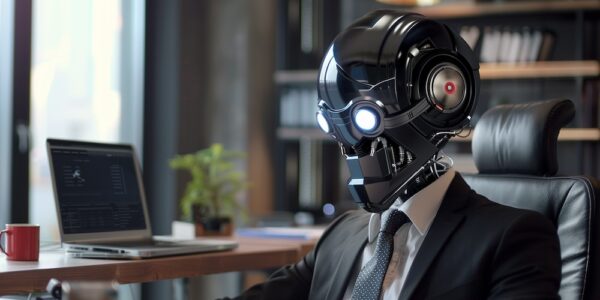We’re still talking about whether robots are coming for our jobs. As AI and automation become more skilled and more essential in most jobs, businesses may require fewer humans. In this scenario, all the current truck drivers, warehouse workers, and welders (or models, accountants, and emergency room nurses — pick your favorite list of threatened occupations) will end up living in their parents’ basements and playing video games all day. Stuck with basic income checks or marginal jobs that actually require human beings, like child care or choreography — people will become nothing more than consumers of goods and services produced by machines.
If that really is the future of humanity, it’s way off in the future. At the moment, two kinds of jobs are being taken over by machines: the lowest level, least skilled, most repetitive jobs, and management and decision making. Carrying boxes from pallet A to pallet B in a warehouse, for example, and capturing all the activities in the warehouse and organizing workers’ schedules based on that information.
For the majority of human workers, then, the robots won’t be coworkers. They’ll be managers.
Will robots be good managers?
The new managers aren’t exactly robot bosses. They are algorithms. That’s harder to imagine, but it’s happening right now. Algorithms already have a lot of input in hiring. They determine how many care workers to put on a shift in a chain of nursing homes. They assign tasks to drivers through apps. They generate performance feedback for factory workers. They draft emails and reports within companies.
Are they good at these tasks? Sometimes. They are fast, efficient, and give an appearance of fairness. We’re saying “appearance” because there have already been plenty of experiments that show bias in Ai devices and computer algorithms in general.
But robots of course cannot be expected to be understanding, empathetic, considerate, or concerned about their workers’ well-being. While human beings have a long history of mistreating one another, at work and elsewhere, robots have no reason to prioritize human feelings. Or even human physical capacity. If your boss works 24/7 with no breaks and no coffee, you can’t expect much compassion.
These videos of robots dancing might be given us an unrealistic idea of the fun level of working with robots.
Solutions?
Regulations may be needed as management roles continue to be automated. At least we should mandate human responsibility for the well-being of workers, even when decisions are automated.
“It was the algorithm” shouldn’t be a plausible excuse for harmful workplace decisions.
